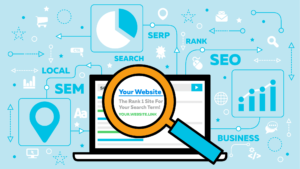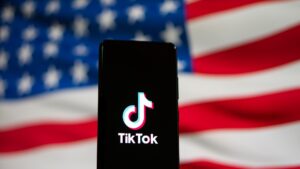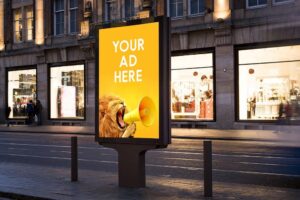[ad_1]
In the ever-evolving landscape of digital advertising, staying ahead of the curve is crucial for marketers. Traditional approaches to paid media, centered around extensive keyword lists and granular optimizations, are undergoing a significant transformation. The rise of AI-driven technologies and changing consumer behaviors are driving a paradigm shift from keywords to conversations.


In a recent discussion I had with Kyle Johnson several key insights emerged regarding this shift and its implications for advertisers. Let’s explore some practical takeaways from that conversation:
- The Evolution of Paid Media Strategies: Kyle highlighted the evolution of paid media strategies over the past few years. With the introduction of new formats and platforms by major players like Google, advertisers are no longer limited to traditional search campaigns. Paid media now encompasses a broader spectrum, including social awareness, display advertising, and even connected TV (CTV) campaigns.
- From Instant Gratification to Brand Building: While traditional paid search and shopping campaigns offer instant results, the landscape is changing. Advertisers need to recognize the value of upper-funnel activities aimed at brand awareness and consideration. Investing in conversations with potential customers across various touchpoints is essential for long-term brand building and staying ahead of competitors.
- The Role of AI and Smart Bidding: Kyle emphasized the role of AI, particularly in Google’s Smart Bidding strategies like Performance Max (Pmax). These AI-powered campaigns help advertisers meet their marketing objectives by leveraging vast amounts of data to target customers across Google’s network efficiently. However, successful implementation requires quality inputs, including optimized feeds, creative assets, and accurate conversion tracking.
- Shifting from Keywords to Contextual Understanding: The traditional approach of keyword-centric campaigns is giving way to a more context-driven strategy. Smart Bidding, paired with broader keyword targeting, allows advertisers to tap into the power of contextual understanding. By focusing on conversations rather than isolated keywords, advertisers can reach relevant audiences more effectively.
- Continuous Learning and Optimization: In the dynamic world of digital advertising, continuous learning and optimization are paramount. Leveraging insights from platforms like Google’s Insights tab enables advertisers to refine their strategies and adapt to changing consumer behaviors. It’s a continuous process of gathering data, analyzing performance, and iterating campaigns for optimal results.
Recommended Resources for Marketers:
- Google Ads: Stay updated with the official updates and latest features and best practices in Google Ads to leverage AI-driven tools effectively.
- Industry Newsletters: Subscribe to industry newsletters and blogs (you’re doing well, you’re on one right now!) to stay informed about emerging trends and strategies in digital advertising.
- AI in Marketing Courses: Explore courses on AI in marketing to deepen your understanding of AI technologies and their applications in advertising.
- Conversion Rate Optimization (CRO) Resources: Enhance your conversion tracking and optimization skills to maximize the impact of your paid media campaigns.
The shift from keywords to conversations represents a paradigm shift in paid media strategies. By embracing AI-driven technologies, focusing on contextual understanding, and continuously optimizing campaigns, advertisers can navigate this evolution successfully and drive impactful results in today’s digital landscape.
Remember, the key lies in staying agile, adaptive, and always ready to embrace new opportunities in the ever-changing world of digital advertising.
[ad_2]





